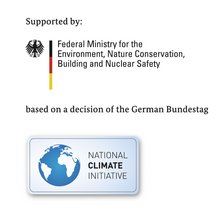8th Annual Meeting of the LCS-RNet
Organisation of the LCS-RNet's 8th Annual Meeting in Wuppertal

On the 6th and 7th of September 2016, the 8th Annual Meeting of the LCS-RNet (Low Carbon Society Research Network) takes place in Wuppertal. The network was established in 2008 by the G8 Conference of Environmental Ministers and comprises independent scientific institutions, whereby Germany is represented by the Wuppertal Institute. The network aims at generating recommendations for the development towards a low-carbon society as well as supporting the exchange between industrial and emerging countries.
In the framework of this project (funding code 03KE0026), the LCS-RNet's Annual Meeting in Wuppertal should be organised adequately and promisingly. The Wuppertal Institute as Germany's scientific representative together with the German Federal Ministry for the Environment, Nature Conservation, Building and Nuclear Safety (BMUB) as the government tie to the network play an important role for the content-related design of the Meeting.
The content of the LCS-RNet's Annual Meeting 2016 is mainly determined by the international agreement reached at the COP 21 in Paris in December 2015, as the international debate has shifted to the question of how to implement the agreement.
- As the industrialised countries strive for greenhouse gas neutrality by around 2050, the main focus is on objectives, plans and roadmaps for deep decarbonisation.
- The emerging countries have to develop concepts for decarbonisation and use the opportunity for "leap frogging" as well since they also strive for greenhouse gas neutrality (albeit in a more distant future).
- Decarbonisation pathways for international air and maritime traffic could be discussed, as these sectors should also function in a GHG neutral way.
- Financial instruments should be developed and implemented which redirect capital flows into supporting the decarbonisation of the energy system.
- The Meeting is supposed to generate useful impulses for German climate politics and should contribute to a beneficial framework for a global energy transition.
Further project information
Links
- LCS-RNet
- Nationale Klimaschutzinitiative
- Projektträger Jülich
- Publication Server: Conference Documentation "Impulses from the 8th Annual Meeting of the LCS-RNet" (Wuppertal Spezial 53)
- Publication Server: GAIA article "Achieving long-term transitions towards full decarbonisation"
- LCS-RNet: Annual Meeting Report
- Publication Server: GAIA article "The Woodstock of sustainability science"
